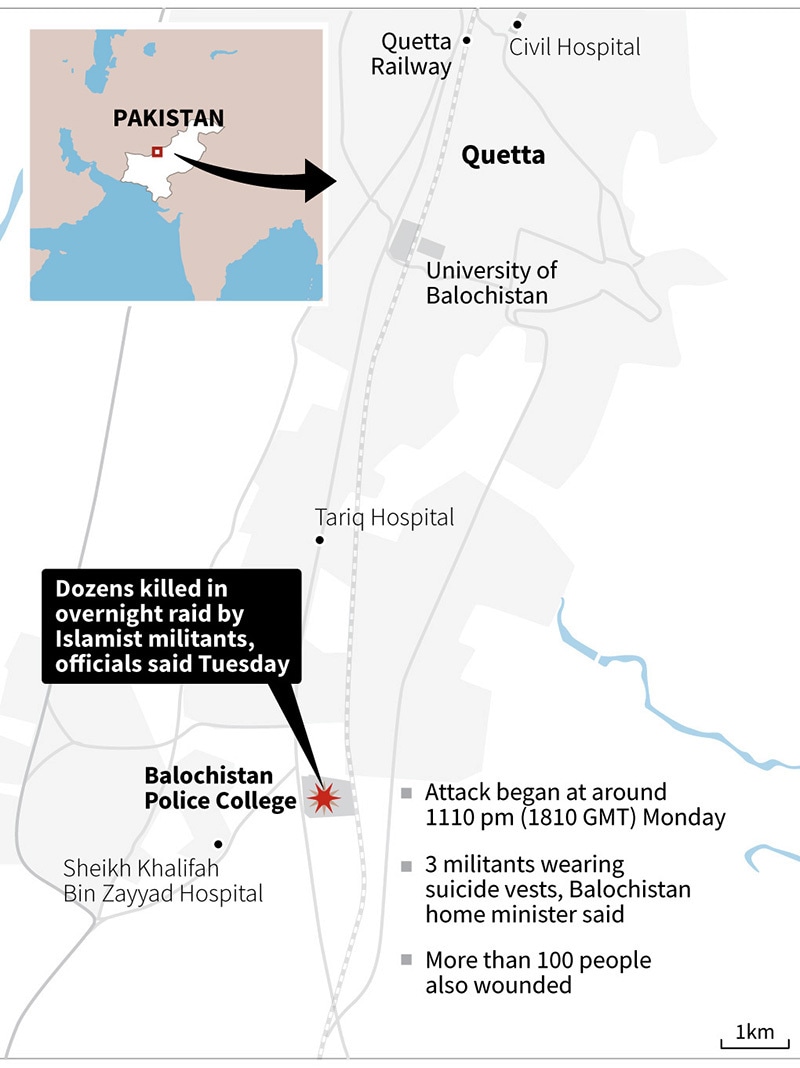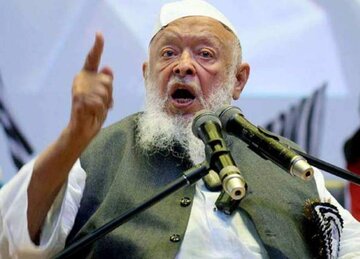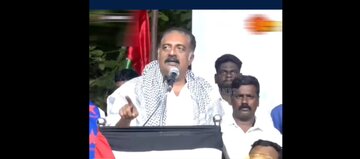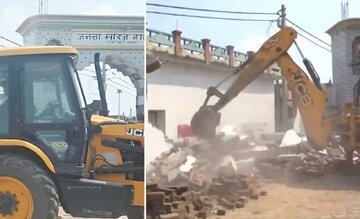(AhlulBayt News Agency) - Heavily-armed militants wearing suicide vests stormed a police academy in Quetta, killing at least 61 people and wounding dozens more, rescue officials said Tuesday, in one of the deadliest extremist attacks this year.
Three gunmen burst into the sprawling academy, targeting sleeping quarters home to some 700 recruits, and sent terrified young men fleeing.
Most of the deaths were caused when two of the attackers blew themselves up. The third was shot dead by Frontier Corps (FC) troops. At least 120 people were injured.
“I saw three men carrying Kalashnikovs… they were in camouflage and their faces were hidden,” one cadet told reporters. “They started firing and entered the dormitory but I managed to escape by climbing over a wall.”
The attack on the Balochistan Police College, around 20 kilometres east of Quetta, began at around 11:10pm Monday, with gunfire continuing to ring out at the site for several hours.
Balochistan Home Minister Sarfaraz Bugti told reporters there had been three attackers.
“They first targeted the watch tower sentry, and after exchanging fire, killed him and were able to enter the academy grounds,” he said.
He later tweeted that the death toll stood at 44 while 118 had been wounded, making the attack the third deadliest in Pakistan this year. Rescue officials said Tuesday morning the death toll had risen to 59.
Major General Sher Afgan, chief of the paramilitary FC in Balochistan, which led the counter-operation, said “the attack was over in around three hours after we arrived”.
The IG FC said "terrorists were communicating with their handlers in Afghanistan". “There were three terrorists and all of them were wearing suicide vests,” he added.
“Two suicide attackers blew themselves up, which resulted in casualties, while the third one was shot dead by our troops.”
The operation needed to be conducted with precision therefore it took us four hours to clear the area completely, he added.
He said communication intercepts showed the attackers belonged to the Al-Alimi faction of the Lashkar-i-Jhangvi militant group — which is affiliated with the Tehreek-i-Taliban Pakistan (TTP). The group itself has not claimed the attack.
Bugti said the compound was home to some 700 recruits, hundreds of whom were rescued.
The area was plunged into darkness when the counter-offensive was launched, while security personnel threw up a cordon and ambulances zoomed in and out, taking the injured to hospitals. Military helicopters circled overhead.
As the battle happened, police and civil administration officials at the site told AFP they had heard several loud blasts.
The cadets were rescued from the college following an operation carried out by Special Services Group (SSG) commandos.
At least 65 people were injured and were treated at Civil Hospital, of which five sustained bullet wounds. Three were said to be in critical condition.
The training college is situated on Sariab Road, which is considered to be one of the most sensitive areas of Quetta. Militants have been targeting security forces in the area for several years.
The training college has come under attack in the past in 2008 and 2006, with attackers firing rockets into the college playground. It covers about an acre of land located about 13 kilometres outside the main city of Quetta.
'Darkness hindered operation'
The attackers entered the complex through the front gate after shooting the guard manning the check post.
A senior law enforcement agencies official said assailants had fired at the police training centre from five different points.
Two terrorist entered the premises after shooting at the guard manning the check post near the front gate, while the third reportedly climbed the rear wall of the police centre.
"Two attackers entered through the front gate," SSP Operations Mohammad Iqbal had said earlier.
Iqbal further said that the suicide jacket of one attacker was not detonated and his body was lying at the centre premises.
He had added that initial investigations showed the terrorists were in the hostel, and as it was dark, there was trouble in identifying friend from foe.
'The attackers were wearing shawls'
An eyewitness speaking to reporters after making a narrow escape said he saw three terrorists directly enter the barracks. "They started firing. We saw them and started screaming. We ran upstairs towards an exit."
He described the terrorists being covered in shawls.
The barracks and hostel blocks are situated deep inside the compound, making it hard to hear any sounds of gunshots from the building.
Security beefed up at hospital
The injured cadets were brought to Civil Hospital. Those in critical condition were shifted to CMH Quetta.
Extraordinary security arrangements were made in and outside the Civil Hospital to prevent any untoward incident, especially in the wake of August 8 attack when a suicide attacker targeted the hospital.
An emergency was declared in all government hospitals of the provincial capital, with the injured shifted to Civil Hospital Quetta and the Bolan Medical Complex.
In August, a suicide bombing at a Quetta hospital claimed by the Islamic State group and the Jamaat-ul-Ahrar killed 73 people, including many of the city's lawyer community who had gone there to mourn the fatal shooting of a colleague.
Lashkar-e-Jhangvi (LJ)
The Lashkar-e-Jhangvi (LJ), whose roots are in the heartland Punjab province, has a history of carrying out sectarian attacks in Baluchistan, particularly against the Shia Muslims. They have killed hundreds of Shia Muslims in the silence of the government and media.
The Lashkar-e-Jhangvi (LJ) was founded in 1996 as a militant offshoot of Sipah-i-Sahaba Pakistan, a Deobandi and anti-Shia group that emerged in the mid-1980s in reaction to class-based conflict and the domestic Pakistani Shia revival. LJ seeks to transform Pakistan into a Deobandi-dominated Salafi/Nasbi state, and primarily targets Shia and other religious minorities, according to National Counter Terrorism Centre of the US Government.
Terrorist groups like Lashkar-e-Jhangvi consider not only the Shias but also Pakistani Sunnis, who venerate shrines of Sufi mystics, as infidels deserving death. In the summer of 2011, Jhangvi sent an open letter to the Shia community in Quetta, the capital of Pakistan’s Balochistan province and home to around six hundred thousand Shia Muslims. The letter, written in Urdu and signed by the commander of Jhangvi, read:
All Shias are worthy of killing. We will rid Pakistan of [this] unclean people. Pakistan means land of the pure, and the Shias have no right to be here…
…We will make Pakistan their graveyard—their houses will be destroyed by bombs and suicide bombers.

/129





